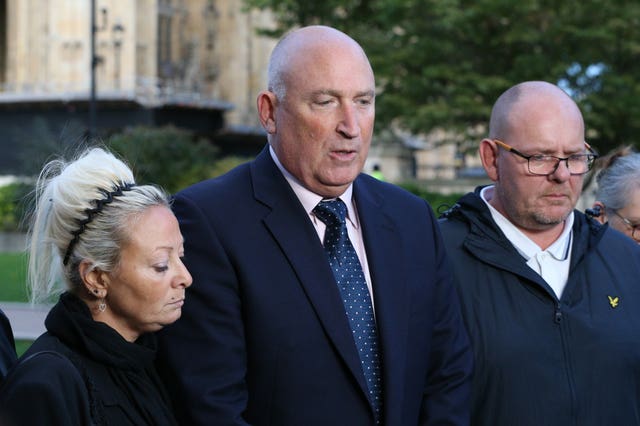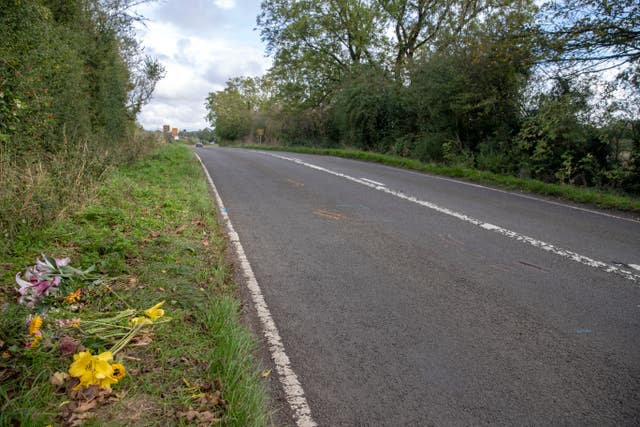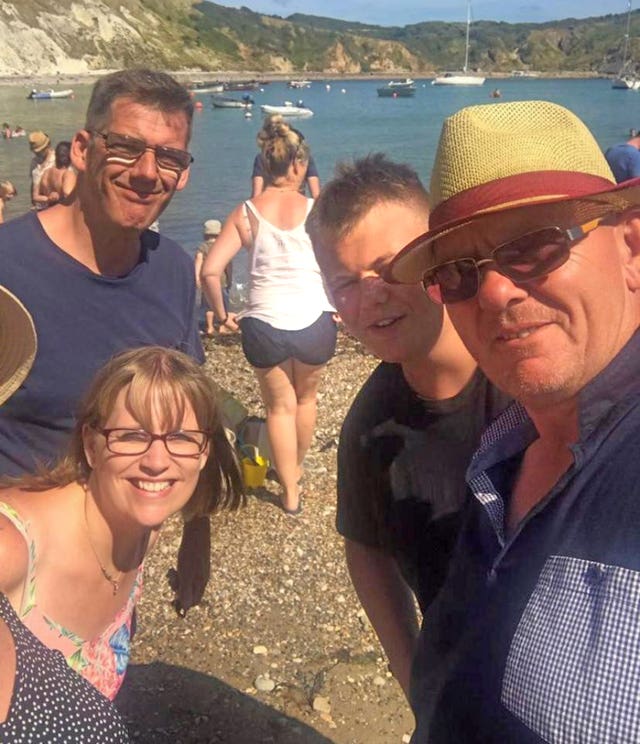Harry Dunn injuries not considered life-threatening despite breaking every bone
Harry Dunn was killed when his motorbike crashed into a car outside RAF Croughton on August 27.

The injuries suffered by Harry Dunn were not considered life-threatening by emergency call handlers, despite “breaking every major bone” in a collision described as a “crash fireball”.
The 19-year-old was forced to wait for paramedics for 43 minutes after the emergency call was “wrongly categorised” and he was “left to die in a ditch” at the side of the road, the family’s spokesman said.
East Midlands Ambulance Service (EMAS) denied the claim the call was wrongly classified, saying: “Based on the information given to us by the caller at the time of the incident, the call was correctly categorised”.
Mr Dunn’s family met with chief executive of EMAS Richard Henderson and director of quality Nichola Bramhall to discuss the delay on Wednesday.

The family’s spokesman Radd Seiger said Harry’s parents, Charlotte Charles and Tim Dunn, are “full of praise” for the work of the paramedics on the scene, but said the delay in getting to their son was “worrying”.
The teenager was killed when his motorbike crashed into a car outside RAF Croughton on August 27.
The family are currently pursuing a civil claim for damages which could be worth “millions of dollars” against the suspect in the case, 42-year-old Anne Sacoolas, after she was granted diplomatic immunity in the days following the crash.
The PA news agency understands that the first call made by a witness to the collision was put in category two, which are incidents of a potentially serious condition, by ambulance staff – which estimates a waiting time of 40 minutes for patients.
If the teenager’s condition was considered as category one, which is described as life-threatening and needing immediate intervention, ambulance crews should aim to attend in seven minutes under NHS England guidelines.
EMAS said Mr Dunn was reported to be conscious and breathing, meaning the call was recorded as a category two.

Speaking to PA about a “constructive” meeting, Mr Seiger said: “Both parties agreed it was not acceptable in the 21st century for a 19-year-old boy to be lying on the side of the road waiting for help for 43 minutes.
“It actually got recorded as a category two call, but that is something that they couldn’t go into.
“A serious road traffic collision should be recorded as category one – he had compound fractures and he was clearly very seriously ill from the start.”
PA understands Mr Dunn’s cause of death was confirmed as hypovolaemic cardiac arrest and multi-site skeletal, abdominal and chest trauma sustained in a road traffic collision.
Mr Seiger said the delay would have been the same regardless because all 22 crews stationed in Northamptonshire were on other calls.
Addressing the reasons given for why there had been a delay, Mr Seiger said: “Mr Henderson made the point that actually, because of the shortage of crews, whether it was a category one or category two wouldn’t have made a difference because the doctors were far away.
“At that point there were lots of tears because the family wanted to know – was he frightened? He was clearly conscious and by the time Tim got there he was still talking.

“From what they were able to share with us, there were no double-crewed vehicles readily available.”
Mr Seiger said Mr Henderson and Ms Bramhall confirmed all other ambulance crews were responding to incidents “less significant” than Harry’s.
After the meeting, Mr Henderson said: “After a request from the family, this afternoon I met with Harry Dunn’s parents to offer my sincere condolences on the death of their 19-year-old son.
“I wanted to take the opportunity to hear from the family at this stage, whilst recognising the complexities and sensitivities of ongoing external legal investigations.
“I understand that this is a very difficult time for the family and I therefore appreciate the time I had with them.
“In due course there will be a Coroner’s inquest into the death of Harry Dunn and EMAS will cooperate fully with that inquiry.
“I have committed to discuss the issues arising with local health leaders in Northamptonshire together with Harry’s parents.”





